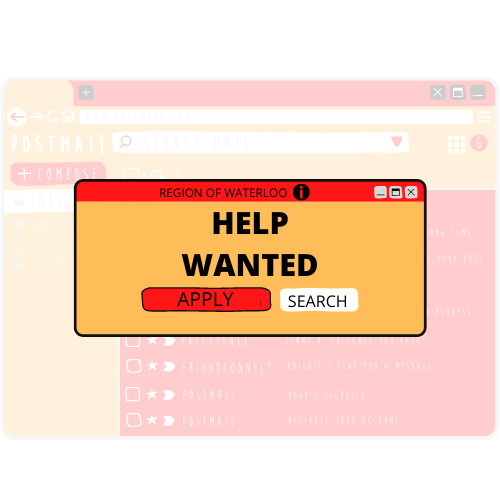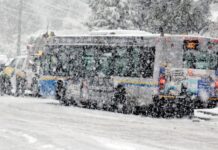On Jan. 19, University of Waterloo faculty and staff received a message from Vivek Goel, president and vice-chancellor, formally asking UW employees to consider aiding high-need areas in the region of Waterloo currently strained by Omicron. Faculty and staff can choose to either be temporarily redeployed or to volunteer on personal time.
The high-need areas outlined in the message include environmental services, food services, virtual visits to residents in long-term and retirement facilities, patient experience assistants, and emergency child care services for emergency workers. Potential jobs include mopping and cleaning, responding to patient calls, providing patients with refreshments, sanitizing high-touch areas, garbage disposal, and preparing food portions or individual cutlery sets.
In an email interview with Charmaine Dean, vice-president of research and international, when asked what the response to the initiative had been like so far, Dean did not give a direct answer, instead stating that “the initial response has been what we expected: University of Waterloo staff are stepping up to learn how they can support.”
Imprint reached out to UW’s university colleges and its marketing and undergraduate team and found that as of Feb. 4, no employees have openly decided to participate in the redeployment initiative.
The university will pay regular salaries for those who work during work hours for up to five weeks in these high-need areas. However, not all staff are eligible for official redeployment — employees whose jobs keep campus operating, such as campus housing, food services, campus security, janitorial services and those in plant operations, will not be eligible for the paid deployment, though the university encourages them to volunteer in their spare time. Co-op students are also not eligible for paid redeployment.
When asked how else the university has responded to similar requests for aid by the region, Dean listed various initiatives the university had taken up throughout the pandemic, such as emptying labs to provide supplies to the region, repurposing labs to produce face shields and researching new tools and methods such as a machine learning-based approach to classify any future COVID-19-like viruses within hours. The university also hosted on-campus testing and vaccination clinics.
To produce face shields, 3D printers in the Multi-Scale Additive Manufacturing Laboratory (MSAM) were used to manufacture roughly 50 to 60 polymeric headbands and bottom reinforcements per day. Ehsan Toyserkani, research director of the MSAM lab, stated that “one of the main benefits of our lab is that we can fully appreciate 3D technologies and how they can be deployed to develop, design and produce medical components.”
UW has previously supported the community through initiatives including donating to local organizations like the United Way and partnering with the City of Kitchener to develop downtown Kitchener’s Health Sciences district into an “Innovation Arena” featuring product development labs, collaborative office spaces and housing UW’s entrepreneurship program, Velocity. The university directed Imprint toward a 2015 Community Impact Report, which they acknowledged was “a bit dated,” but “reflects of the scope of ways in which we continue to connect with the community.”































